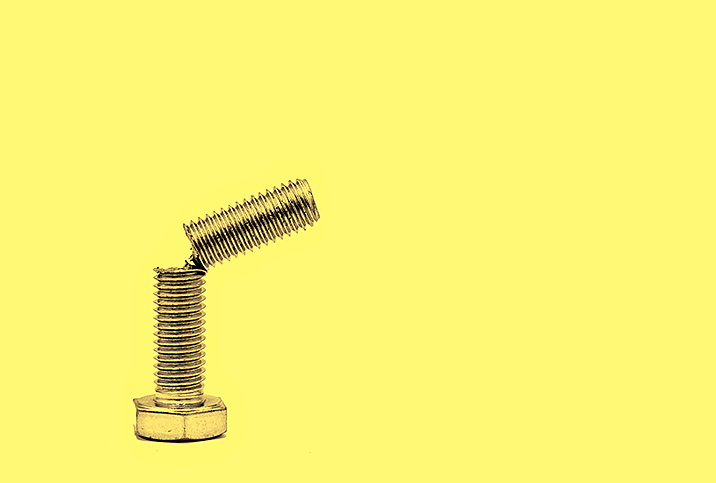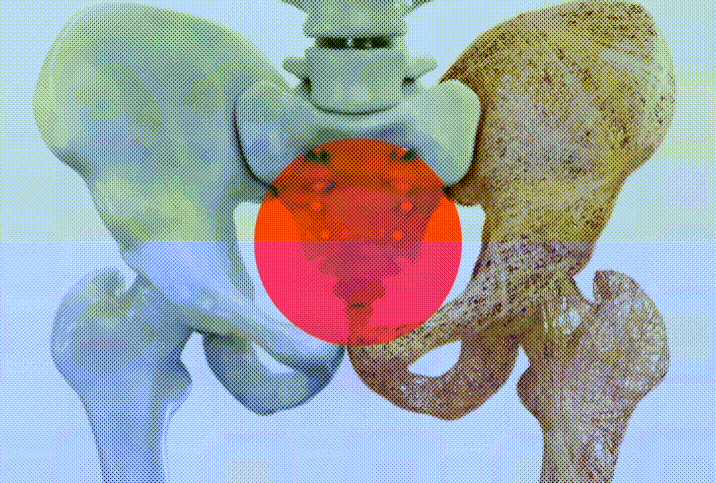Leriche Syndrome Affects the Lower Extremities—Including Your Penis

Spend enough time researching erectile dysfunction (ED) and its many causes, and you start to think, "Been there, done that." Then you discover an obscure syndrome that's definitely tied to ED but, like so many other health problems, starts with the heart and arteries.
Leriche syndrome, named after French vascular surgeon René Leriche, is one of many manifestations of peripheral arterial disease (PAD), a circulatory condition in which the arteries are narrowed, reducing blood flow to the limbs.
Leriche syndrome, a grouping of several different symptoms, is characterized by a specific blockage in the aorta, the large artery that carries blood from the heart and feeds it to all the major areas of the body. Also known as aortoiliac occlusive disease, Leriche syndrome is typically caused by atherosclerosis, the hardening and narrowing of the arteries from plaque buildup. Common symptoms include pain in the legs and buttocks, especially when walking, erectile dysfunction, and diminished pulses in the groin and legs.
Near the belly button, the aorta splits into the iliac arteries and goes to both legs. Many blockages in the arteries happen at split points, or bifurcations, according to Matthew T. Menard, M.D., associate professor of surgery at Harvard Medical School and co-director of endovascular surgery at Brigham and Women's Hospital in Boston.
Also known as aortoiliac occlusive disease, Leriche syndrome is typically caused by atherosclerosis, the hardening and narrowing of the arteries from plaque buildup.
Arteries to the penis are "downstream" from where the aorta splits, so any blockage can result in ED in men.
"If you fix that blockage, then you could potentially see an improvement in your dysfunction," Menard said.
ED associated with Leriche syndrome is categorized as arteriogenic erectile dysfunction or arterial insufficiency, said Martin N. Kathrins, M.D., assistant professor of surgery at Harvard Medical School and a urologist at Brigham and Women's Hospital. If a man has arterial insufficiency, even if he has smooth muscle relaxation in the penis from taking an ED medication such as Viagra, he won't be able to achieve the peak systolic velocities—in-flow rates—required to get enough blood into the penis for an erection.
Therefore, Leriche syndrome leads to a "failure of an initiation of an erection," Kathrins said.
What is claudication?
"Claudication," one of the symptoms of Leriche syndrome, is a medical term for pain in your legs when you walk, Menard said. It occurs in patients whose muscles need more blood flow when they walk. The muscles' normal reaction is to send a signal to the blood vessels in the brain to open up the vessels.
"It steals blood from somewhere else and sends the reinforcements to the muscle," Menard said. "When you have a blockage, they're getting the signal, but no additional blood flow is getting there, so the muscle isn't getting the blood flow it needs. You build up lactic acid, and that shows up as pain."
Claudication typically occurs in both legs because Leriche syndrome involves a blockage in the aorta. Patients may get claudication in the calves, thighs, hips and buttocks on both sides, because all distribution below the aortic bifurcation is affected, Menard said.
How is Leriche syndrome treated?
If Leriche syndrome can't be managed with behavior and lifestyle modifications or medications, a minimally invasive surgical treatment may be necessary. The most common one is the placement of a stent in the aorta or iliac arteries, according to the Society for Vascular Surgery. A vascular surgeon or interventional radiologist will use angioplasty and stenting, which involves using a balloon to open the artery and a wire mesh tube to keep it open. Surgery to bypass the blocked arteries may also be an option.
The consequences of not treating advanced Leriche syndrome could range from loss of limb to loss of life, according to Amin Al-Ahmad, M.D., a cardiac electrophysiologist at Texas Cardiac Arrhythmia Institute in Austin.
"Certainly, [Leriche syndrome] can stay stable for many years, and people can live with decreased blood flow," Al-Ahmad said. "They may not be able to have sex, they may not be able to walk for long periods of time, but they can live with it. Just depends on the individual."
Other consequences of no treatment are limited mobility, limited activity and increased pain. Al-Ahmad pointed out that patients exacerbate their problems when they start to accommodate their symptoms before the condition gets to the stage where they seek treatment.
"They just stop walking far, and then they gain weight. Slowly, things start to turn worse and worse," he said. "All of that inactivity and accommodating for this tend to just make things harder to treat in the end."
Not a common syndrome
Leriche syndrome is not commonly discussed outside of medical school, even among vascular surgeons, according to Menard, who said he can remember diagnosing it in only one patient over the course of his career.
Kathrins said Leriche syndrome is not at all a common presentation.
"Dr. Menard and I share patients who have peripheral vascular disease broadly, and we're both in a multidisciplinary team-based approach to these patients," he said. "This specific scenario [Leriche syndrome] is quite rare."
Al-Ahmad added that he thinks Leriche syndrome is likely underdiagnosed.
Prevention tips
Prevention of Leriche syndrome is similar to fending off any type of heart disease: avoid fatty diets, keep cholesterol and blood pressure levels in check, and exercise regularly.
One of the most important lifestyle modifications is to avoid tobacco.
"Fortunately, in the U.S., I think our numbers are getting better, but there are still pockets of places that have substantial tobacco use," Al-Ahmad said. "Improvement in those numbers would go a long way for this type of syndrome."
Menard explained that the aorta and iliac vessels are affected in smokers more than in people with diabetes. Diabetes more commonly affects the small arteries of the calf, he said.
"Smoking is probably the biggest risk factor," Menard said. "Healthy diet and exercise are by far the best ways to prevent blocked arteries."
According to Kathrins, there is evidence to suggest increased aerobic activity may have beneficial effects on the endothelium, or the blood vessel lining, within the penis. He noted, however, that a patient with significant peripheral arterial disease may be in too much pain to exercise.
'Canary in a coal mine'
If a patient has arterial insufficiency due to atherosclerosis and high cholesterol, making major dietary changes and losing weight are critical to help the medical therapies work and prevent the progression to surgery, Kathrins said.
"All of the erectile dysfunction medications we have are sort of like Band-Aid medicine; you're treating it on demand," he said, adding that lifestyle changes must be made to improve sexual health and avoid penile prosthesis placement.
One of the reasons patients with Leriche syndrome and other peripheral arterial diseases are at very high risk for ED is because the penile artery is only 2 millimeters in diameter.
If a patient's Leriche syndrome is due to atherosclerosis, it will often present first in the penis.
"It's almost like a canary-in-a-coal-mine-type thing," Kathrins said. "The erection can be lost first, and it can actually be a sign that there may be something else brewing."


















